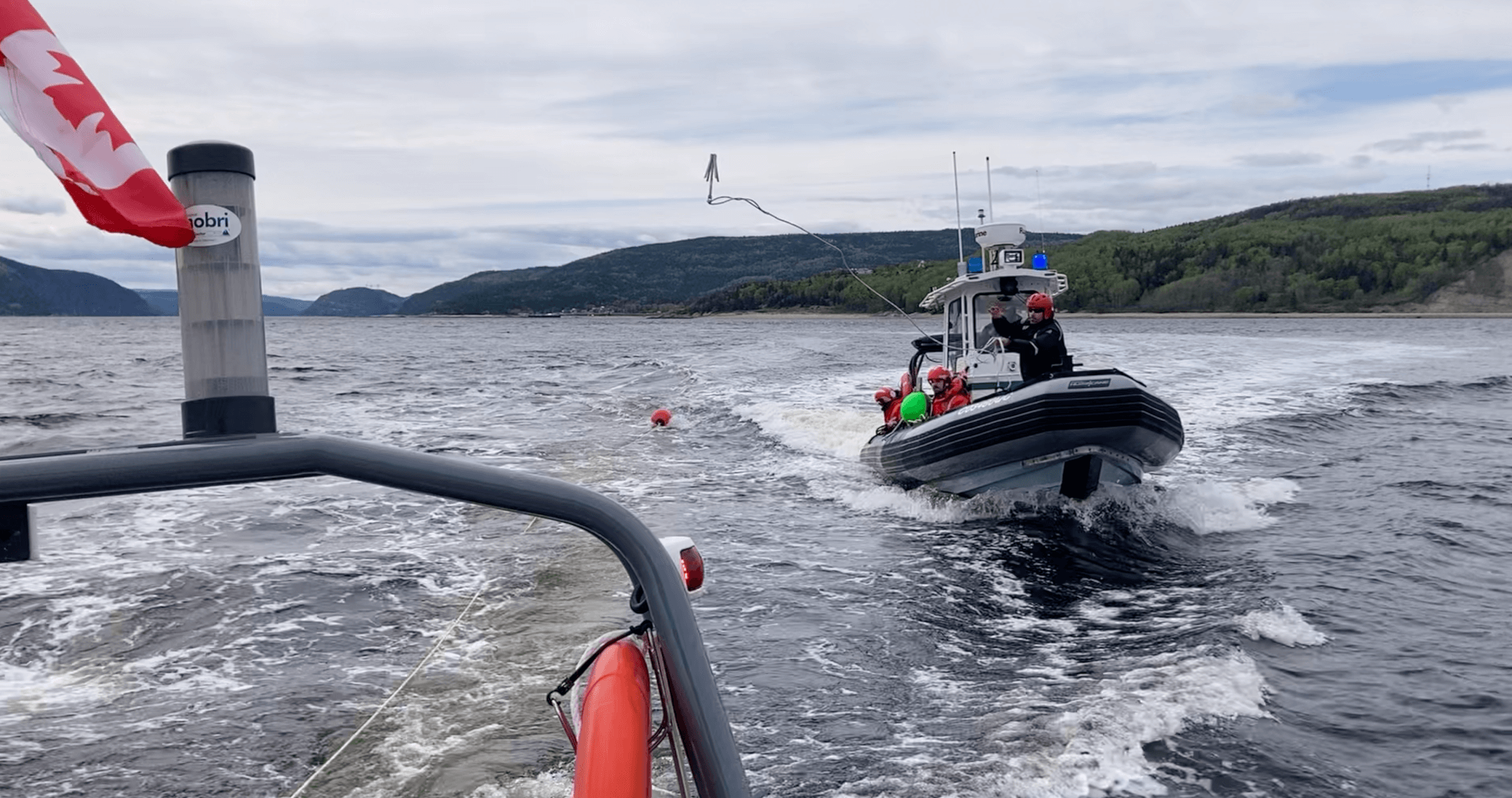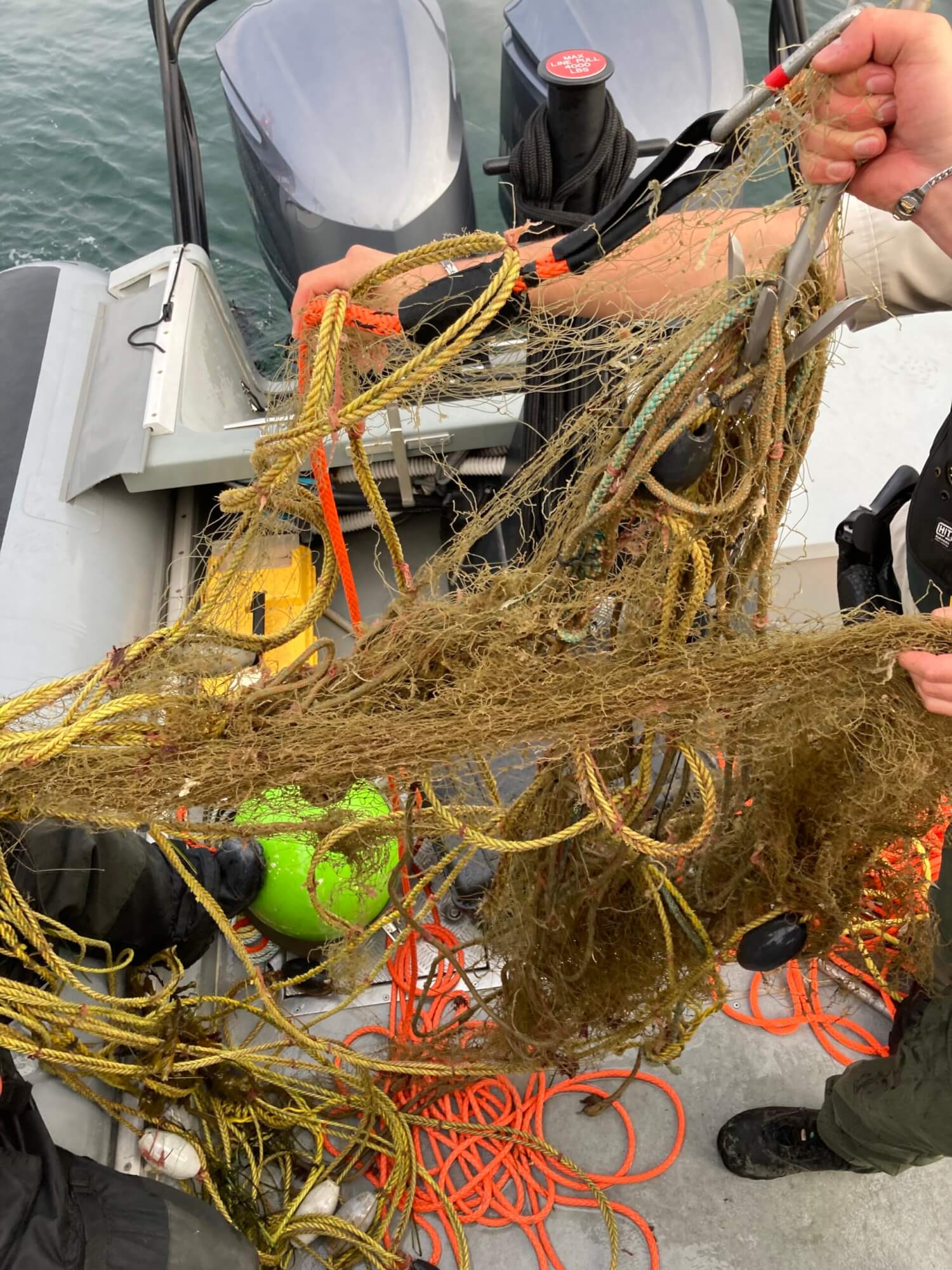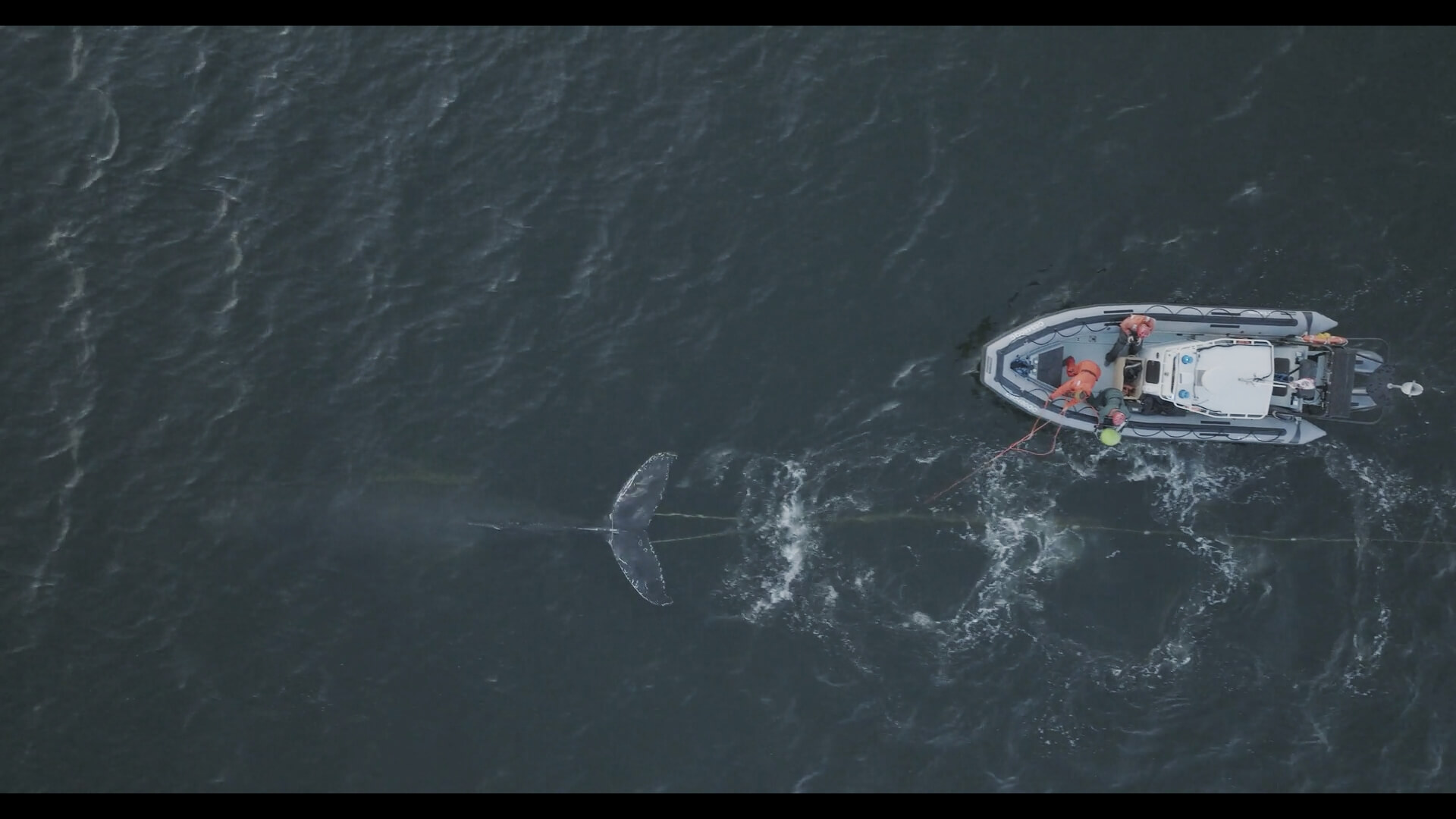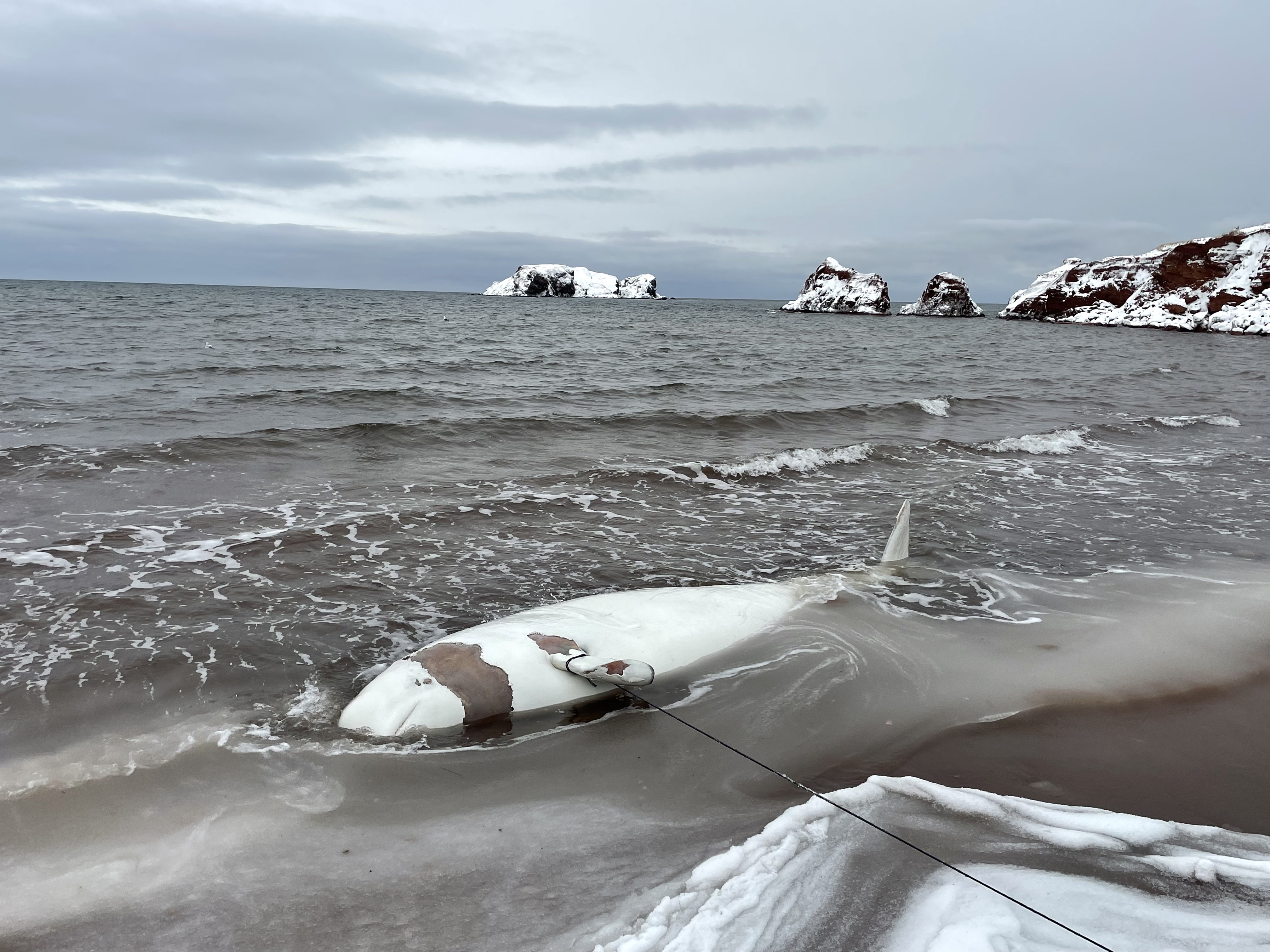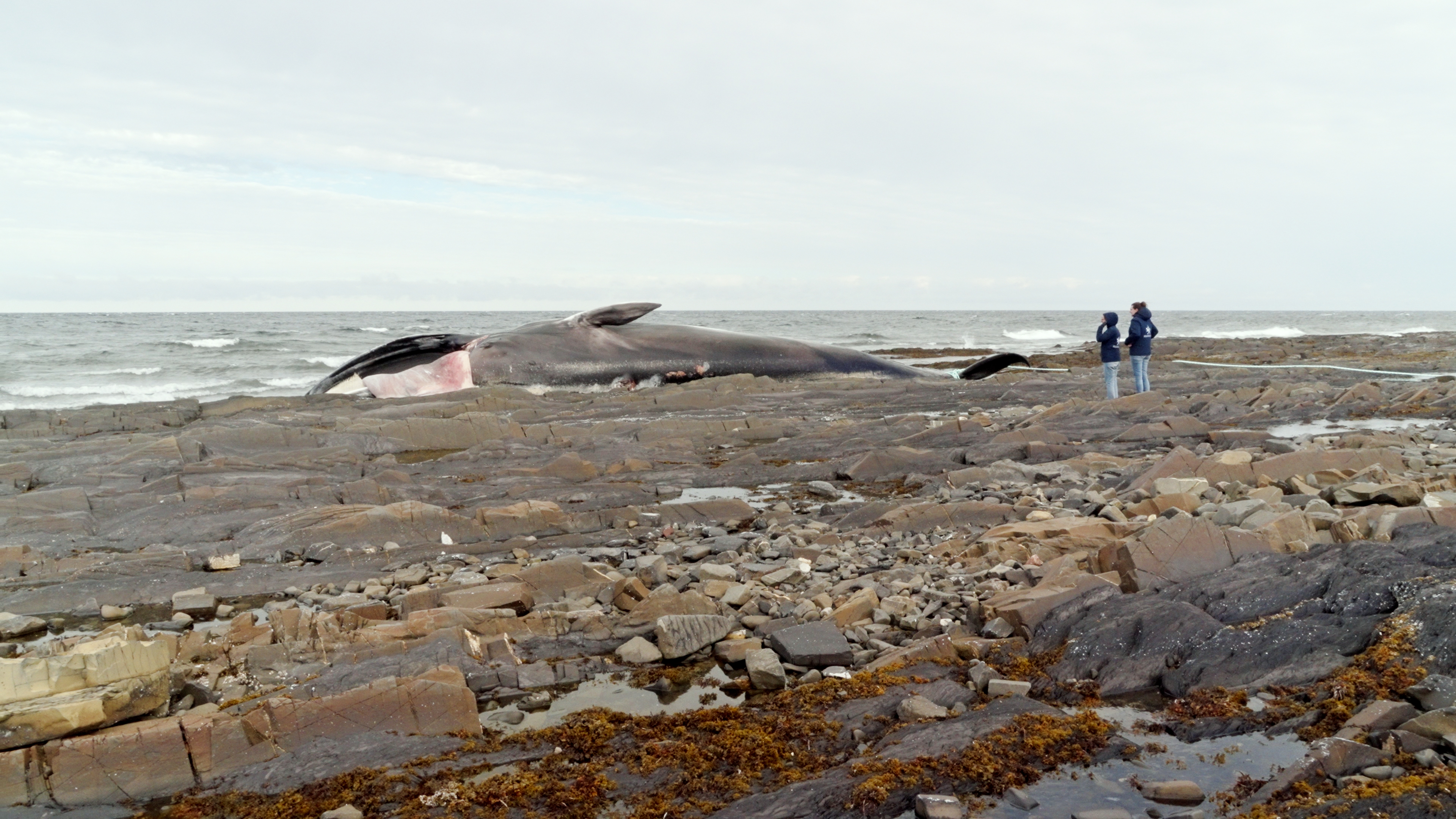On May 23 and 24, several members of the team from the Quebec Marine Mammal Emergency Response Network (QMMERN) and Parks Canada (Saguenay-St. Lawrence Marine Park) received training on satellite tagging from the Campobello Whale Rescue Team (CWRT). CWRT has developed expertise in intervening with whales that have gotten themselves entangled in fishing gear. It is overseen by the Canadian Whale Institute, which conducts research on and rescues marine mammals. Working in tandem with a number of partners, QMMERN is able to coordinate complex interventions in entanglement situations. Depending on the situation and the location, different teams may be called upon to intervene with struggling cetaceans. The recent training, which took place off the coast of Tadoussac, allows response teams to acquire and develop their experience in an effort to strengthen collaboration between the different organizations concerned by entanglements.
Complex cases
According to QMMERN’s intervention manager Patrick Weldon, entanglements are extremely complex situations. “These incidents require the convergence of highly specific skills: ability to operate a boat, familiarity with how cetaceans behave, experience in approaching struggling whales and a good knowledge of how to stay safe on the water.” Few people are trained for these demanding situations and the territory to be covered is vast. “Sometimes placing a tag on the animal’s rope before the disentanglement team arrives helps avoid losing the animal,” adds Laurence Tremblay.
The 2-day training was an opportunity to practice the various skills necessary for installing a satellite tag while on the water. On board a boat, trainees followed the movement of another vessel as if it were an entangled whale. The focus of the training was both how to operate the watercraft while approaching a whale and how to apply the tags, as this exercise represents a considerable risk of colliding with or disturbing the animal. Environmental conditions and equipment must also be taken into account in order to ensure the safety of those individuals taking part in the operation.
Frequent occurences
A good example of an entanglement incident occurred last September in the estuary when a humpback whale caught in rope was spotted. QMMERN and Parks Canada were able to place a satellite tag on the rope in which the whale had ensnared itself despite the rather difficult weather conditions. The tag was used to track its movements until CWRT arrived. The following day, the rope and tag were recovered and, thanks to remote sensing measurements, it was possible to confirm that the whale had freed itself of the rope. Of course, every one of these cases is different, so the training provided invaluable hands-on experience.
Watchword: collaboration
Given the complexity of coordinating events such as disentanglements, collaboration between multiple parties is essential. To develop a response plan, QMMERN depends in part on the information transmitted in reports made to UMM by local residents and communities. After that, mobilization of rescue teams such as the Campobello Whale Rescue Team or Parks Canada is required.
“Given that the specialized team comes from afar, we have a big job to do on the ground ahead of their arrival. If we collaborate with other teams in the sector and we manage to place a tag to easily locate the entangled individual, there is a better chance that the operation will be a success,” explains Patrick Weldon. Entanglement cases remind us that there are many challenges to overcome for humans and whales to coexist. This is why it is particularly important to be aware of the impacts that human activities can have on wildlife. Training is a first step toward mitigating the threats faced by a number of species in the St. Lawrence.


